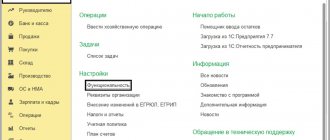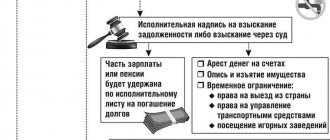○ What is a technically complex product?
Technically complex goods are products intended for long-term use, which are equipped with a complex internal structure. Such products perform various functions at a high technological level and involve the use of energy resources.
Products of this level always have detailed instructions for use indicating safety precautions. This is another difference between technically complex products and others. The entire list of such products is provided for in Decree of the Government of the Russian Federation No. 924 of November 10, 2011.
In addition, legal issues regarding technically complex goods are regulated in the following regulations:
- Law of the Russian Federation No. 2300-1 “On the protection of consumer rights” dated February 7, 1992.
- Civil Code of the Russian Federation.
- Resolution of the Plenum of the Armed Forces of the Russian Federation No. 17 of June 28, 2012.
If any defects are identified, such goods can be returned within 15 days. If this period has passed, a return or exchange can only be made if a significant defect is detected.
○ Significant drawback of the technical device.
The term “significant defect” refers to the following types of defects:
- Unremovable.
- The cost of remediation is equal to, greater than, or close to the cost of a new device.
- Repairs take longer than allowed by law.
- Regular breakdowns of various elements of the device.
- Constant breakdowns of the same element.
This list is not exhaustive. If the consumer believes that the purchased product has a significant drawback, he has the right to defend his point of view.
✔ Impossibility of repair.
A significant drawback is, first of all, one that cannot be eliminated for any reason. As a rule, the manufacturer is to blame for the impossibility of repair.
Law “On the Protection of Consumer Rights”: A significant defect in a product (work, service) is an irreparable defect or defect that cannot be eliminated without disproportionate costs or time, or is detected repeatedly, or appears again after its elimination, or other similar defects.
✔ The cost of repairs is comparable to the cost of a new device.
When the issue concerns a technically complex product, the proportionality of the cost of repairs and the price of a new device is determined in court. In this case, the features and beneficial properties of the product are taken into account.
Clause 13 of the Resolution of the Plenum of the Supreme Court of the Russian Federation No. 17 of June 28, 2012: A defect in a product (work, service) that cannot be eliminated without disproportionate costs is a defect, the cost of eliminating which is close to the cost or exceeds the cost of the product (work, service) itself. or the benefit that could be obtained by the consumer from its use.
✔ Repeated breakdowns due to the fault of the manufacturer.
In this case, various shortcomings are regularly and repeatedly identified in the purchased device. Each of the defects makes the product non-conforming to the stated requirements.
As a result of constant breakdowns, the device cannot be used. That is, in fact, the product does not perform the functions for which it was originally purchased.
✔ Systematic breakdowns of the same element.
Regular breakdowns of the same part imply that the consumer has already contacted for repairs. However, this did not help resolve the problem, and it reappeared.
For example, a person bought a tablet computer, but it turned out that it overheats greatly. The device has been repaired. If problems arise with the sensor, lock button or display in the future, this will not be considered a systematic breakdown of the same element.
If the buyer again encounters overheating of the device, he will be able to demand a return or exchange of the product. They will not have the right to refuse him. This will not require
✔ Is a breakdown that interferes with operation considered a significant drawback?
If the device cannot be used for more than 30 days during the year due to a breakdown, the buyer has the right to demand a refund or replacement with a similar product. Such claims can be made during the warranty period.
This is provided for in paragraph 1 of Article 18 of the Law “On Protection of Consumer Rights”. In this sense, the impossibility of operation is equated to a significant disadvantage.
Concept of significant deficiency
The concept of a significant deficiency is disclosed in the law “On the Protection of Consumer Rights” and the Resolution of the Plenum of the Supreme Court of the Russian Federation dated June 28, 2012 No. 17 “On the consideration by courts of civil cases in disputes regarding the protection of consumer rights.” Also, the issue of significant violations of product quality requirements is raised in Article 474 of the Civil Code of the Russian Federation.
According to the law, a significant defect is a defect in a product, service or work that cannot be eliminated completely or without disproportionate expenditure of money or time, and which appears repeatedly, including after elimination, or other similar defects.
In this case, disproportionate expenses are expenses close to the cost of the goods or exceeding its cost, and disproportionate expenses of time - no more than 45 calendar days or another period established by agreement with the seller.
The irreparability of a defect is the impossibility of using the product for its intended purpose or for the purposes of purchase communicated to the seller after measures to restore it.
Repeatedly identified deficiencies are deficiencies that appear more than once.
Various defects of the product may be considered a significant defect, the time to eliminate which during each year of the warranty period in total is more than 30 days (clause 14 of the Plenum Resolution)
Significant shortcomings are manifested in technically complex goods, the list of which is approved by Decree of the Government of the Russian Federation of November 10, 2011 No. 924 “On approval of the list of technically complex goods.”
○ Consumer rights when such a defect is discovered.
If the buyer identifies a significant defect after purchasing the device, he has the right to contact the seller with a claim and return the defective product. He may require:
- Replace the low-quality device with a new one similar to the defective one.
- Exchange for a similar product, but of a different brand or model with an additional payment or refund.
- Reduce the price of the product and return the difference due to the discovery of a defect.
- Repair the defective device free of charge under warranty.
- Reimbursement of the amount spent on repairs, if they have already been made.
- Termination of the purchase and sale agreement with subsequent return of the money spent.
The buyer can independently decide what exactly to demand from the seller. This possibility is provided by law.
Clause 1 of Art. 18 of the Law “On the Protection of Consumer Rights”: The consumer, if defects are detected in the product, if they were not specified by the seller, at his choice has the right:
- Request a replacement for a product of the same brand (same model and (or) article).
- Request a replacement for the same product of a different brand (model, article) with a corresponding recalculation of the purchase price.
- Demand a commensurate reduction in the purchase price.
- Demand immediate, free of charge elimination of defects in the product or reimbursement of costs for their correction by the consumer or a third party.
- Refuse to execute the sales contract and demand a refund of the amount paid for the goods.
At the request of the seller and at his expense, the consumer must return the defective product. In this case, the consumer also has the right to demand full compensation for losses caused to him as a result of the sale of goods of inadequate quality. Losses are compensated within the time limits established by this Law to satisfy the relevant consumer requirements.
✔ Return the product.
The buyer has the right to return the goods during the entire warranty period if a significant defect is detected. If such a defect is proven, the seller has no right to refuse the buyer.
Clause 2 of Art. 475 of the Civil Code of the Russian Federation: In the event of a significant violation of the requirements for the quality of goods (detection of fatal defects, defects that cannot be eliminated without disproportionate costs or time, or are detected repeatedly, or appear again after their elimination, and other similar defects), the buyer has the right to refuse from the execution of the purchase and sale agreement and demand the return of the amount of money paid for the goods.
✔ Exchange the device for an analogue one.
An exchange is possible if there is evidence that the deficiency arose due to the fault of the manufacturer or seller, and also if the required product is actually available at the retail outlet. The buyer also has the right to demand an exchange of the device if the seller delays the examination or repair.
The exchange is made within seven days. When the required product is not available, this period increases to a month.
✔ Examples of returns/exchanges.
There are many examples in judicial practice when buyers sought the return or exchange of low-quality, technically complex goods.
The decision of the court of the city of Vidnoye, Moscow region, dated October 5, 2012, ordered the car dealership to exchange a low-quality car for a new one and compensate for the damage incurred by the consumer. The buyer filed a claim in court to exchange the defective car for a similar one. The reason for the requirement was that during operation significant shortcomings were revealed in the form of peeling of the paint coating and metal corrosion. The defendant's representatives were not present in court. The plaintiff presented an independent expert report, which confirms that the defect is a manufacturing defect, and quality can only be restored by replacing the body.
On June 29, 2014, the Moscow Court heard a case regarding the recovery of funds for goods due to violation of the deadlines for eliminating a significant defect in a technically complex product. The buyer purchased a laptop in which a manufacturing defect was discovered during operation. Due to this circumstance, warranty repairs were carried out. However, after 45 days the laptop was not returned to the buyer. The court decided to satisfy the claim and recover money from the defendant for the defective goods.
Disadvantages of goods, works, services
What do we pay attention to when purchasing a product?
For price, appearance, internal properties, equipment. We can always choose a TV, but this will not save us from possible problems with it. Someone buys into the inflated price tag, believing that the rule “the stingy pays twice” applies here. And in fact, there is sound logic in this. But the high price of a product does not always reflect its quality. It would seem that equipment, clothing, and any other things in general are short-lived. Therefore, defects that appear in a product are common. But cases take a completely different turn when, having bought a product in a store, after using it for a week, it becomes unusable.
Who will be responsible for this? It seems like you used it. On the other hand, what about the warranty period?
With services, things are much more complicated, since services are characterized by a lack of results.
Therefore, it is quite difficult to prove that the service was of poor quality. But let's return to the shortcomings of the product. For example, a young man contacted our agency after purchasing a phone from a well-known technology retailer.
The phone was purchased in installments because the amount was impressive. Imagine the person’s surprise when the phone turned out to be faulty a week after use. Then the young man contacted the store with a demand to replace the product under warranty. This was done.
However, the subsequent phone did not last long. As a result, the client had to experience all the hardships of claiming the money paid back. The lawyer wrote a complaint, to which the company refused to respond. And only through the court were they able to achieve their rights.
What are the disadvantages of the product? What does the consumer have the right to demand? For which shortcomings is the seller responsible, and for which is the consumer responsible?
What are the disadvantages of the product?
A significant defect in a technically complex product, as opposed to an insignificant one, gives the consumer more time to apply for a refund.
A significant defect is a defect that cannot be eliminated without disproportionate expenditure of time and effort, or that appears repeatedly, including after repairs.
An easily remediable defect identified once is not considered significant.
On what basis should a significant deficiency be identified? The main thing is the impossibility of eliminating it. If the product is easy to repair, the defect is not considered significant. For example, the courts did not classify a faulty computer display as such a defect.
Repeated deficiencies are significant, even if they are corrected by the time of trial. If the shortcomings have been eliminated, this does not mean that they were not significant.
When defects appear after elimination and prevent the product from being used for its intended purpose, this indicates that they are significant.
It doesn’t matter that they were eliminated before the trial and that at the time of the dispute the goods were in working order. What does the consumer have the right to demand? If you discover defects in a product or service that were not specified by the seller, you have the right, at your choice, to demand from the seller of the goods:
- replacement with a product of the same brand of proper quality;
- replacement of the same product with another with recalculation of the price if the price of the product is different;
- reduction of the purchase price in proportion to the shortcomings of the product;
- immediate free elimination of product defects or reimbursement of your expenses for their elimination.
- refund of the amount paid for the goods. In this case, the goods of inadequate quality are returned to the seller at his expense.
It is important to understand that in this case, you need to prepare evidence that the defect arose through the fault of the seller and you tried to eliminate it. This could be, for example, an expert’s opinion on the cost of eliminating the relevant deficiencies; estimate for work to eliminate deficiencies;
The buyer may also submit demands to replace the product with a similar one, to eliminate defects in the product or to reimburse the costs of eliminating them to the manufacturer, an organization authorized by him or an entrepreneur or importer of the product.
You also have the right to demand full compensation for losses caused to him as a result of the sale of goods of inadequate quality.
At the same time, he has the right to choose who to present such a demand to - the seller or the manufacturer. For which shortcomings is the seller responsible, and for which is the consumer responsible?
The seller of the organization, regardless of its form of ownership, as well as individual entrepreneurs selling goods to consumers under a sales contract (preamble to the Law of the Russian Federation “On the Protection of Consumer Rights”) is responsible for defects in goods for which there is no warranty period, if you prove that that they arose before the goods were transferred to you.
If the product has a warranty, the seller is responsible for such defects. He is responsible for proving that the defects arose after the goods were transferred to you due to violation of the rules of use, storage or transportation of the goods, actions of third parties or force majeure.
Also, if the seller did not provide you with the necessary information about the product, as a result of which a defect was discovered, he is also responsible for this.
Cases when the consumer is responsible for defects You are responsible for defects in the product for which the warranty period is established if they arose after acceptance of the product due to improper operation, storage or transportation of the product, as well as actions of third parties or force majeure.
If the warranty period for the goods is not established and there is no evidence that the defects or the reasons that caused them arose before the goods were transferred to you, you are also responsible for the defects.
Consumer disputes are mostly resolved in favor of the consumers themselves. The main thing, and perhaps the most difficult thing in consumer disputes about product defects, is to collect the necessary evidence. After all, it is their number that determines what decision the court will make.
○ At whose expense is the examination carried out?
To confirm the presence of a significant defect in a technically complex product, it is necessary to conduct an independent examination. Its result will confirm or deny the presence of a marriage.
The examination is carried out at the expense of the seller. However, if the results reveal that the defect arose through the fault of the buyer, he is obliged to compensate the seller for the cost of the examination.
Clause 5 of Art. 18 of the Law “On the Protection of Consumer Rights”: In the event of a dispute about the reasons for the occurrence of defects in the goods, the seller (manufacturer), an authorized organization or an authorized individual entrepreneur, the importer is obliged to conduct an examination of the goods at his own expense.
If, as a result of the examination of the goods, it is established that its defects arose due to circumstances for which the seller (manufacturer) is not responsible, the consumer is obliged to reimburse the seller (manufacturer), an authorized organization or an authorized individual entrepreneur, the importer for the costs of conducting the examination, as well as those associated with its implementation. costs of storing and transporting goods.
What defects fall under the definition of “significant defect”
A significant defect in a product, work, service is a flaw, defect or, in the case of services, a defect, which entails the impossibility of using a particular product for its intended purpose, without modifying it or performing repair work.
In this case, the cost of completing work/repairing the product must correspond to or exceed the cost of the product on the market. A significant drawback implies the impossibility of normal operation of the product for its intended purpose, and therefore is the basis for its return to the retail outlet.
Rospotrebnadzor brings some clarity to the concept of a significant deficiency. According to the directives of this office, a defect can be considered significant in the following cases:
- The defect cannot be eliminated by modification or repair. That is, we can talk about a significant drawback if, for example, the service center specialists cannot fix the breakdown.
- A marriage can be corrected, but significant sums of money must be spent to eliminate the defect. Although some products can be repaired, their cost will exceed the market price of the device itself. In this case, the citizen can exchange the goods or return their funds.
- Damage can be repaired as a result of repair work, but this process will take more time than stipulated in the terms of the purchase and sale agreement, work or provision of services (by law, the maximum repair period is 45 days).
- It was detected more than once or the buyer discovered several defects at once that affect the operation of the device.
- A discrepancy between the product and the sample was detected when the product was sold based on the sample.
It should be noted that if a citizen discovers a defect again, after it has been eliminated, the damage can also be classified as significant. Such a circumstance is the basis for putting forward a demand for the exchange of defective goods or a refund.
How to write a complaint to the housing inspectorate about the work of housing and communal services?
It is important to know how and where to complain about doctors.
And here is a sample of a collective complaint against a manager.
○ Advice from a lawyer:
✔ I bought a tablet from one of the hardware stores, but soon it began to turn off constantly. I went to the store, they sent it for examination, and it turned out that it was a factory defect. A return or exchange was refused, citing the fact that two weeks had already passed since the start of use. Is this legal?
The seller’s actions are not legal, since if there is a significant defect, a return or exchange can be made during the entire warranty period. This is provided for in paragraph 1 of Article 18 of the Law “On Protection of Consumer Rights”. It is necessary to write a complaint to the seller, and if the issue is not resolved, contact Rospotrebnadzor or the court.










